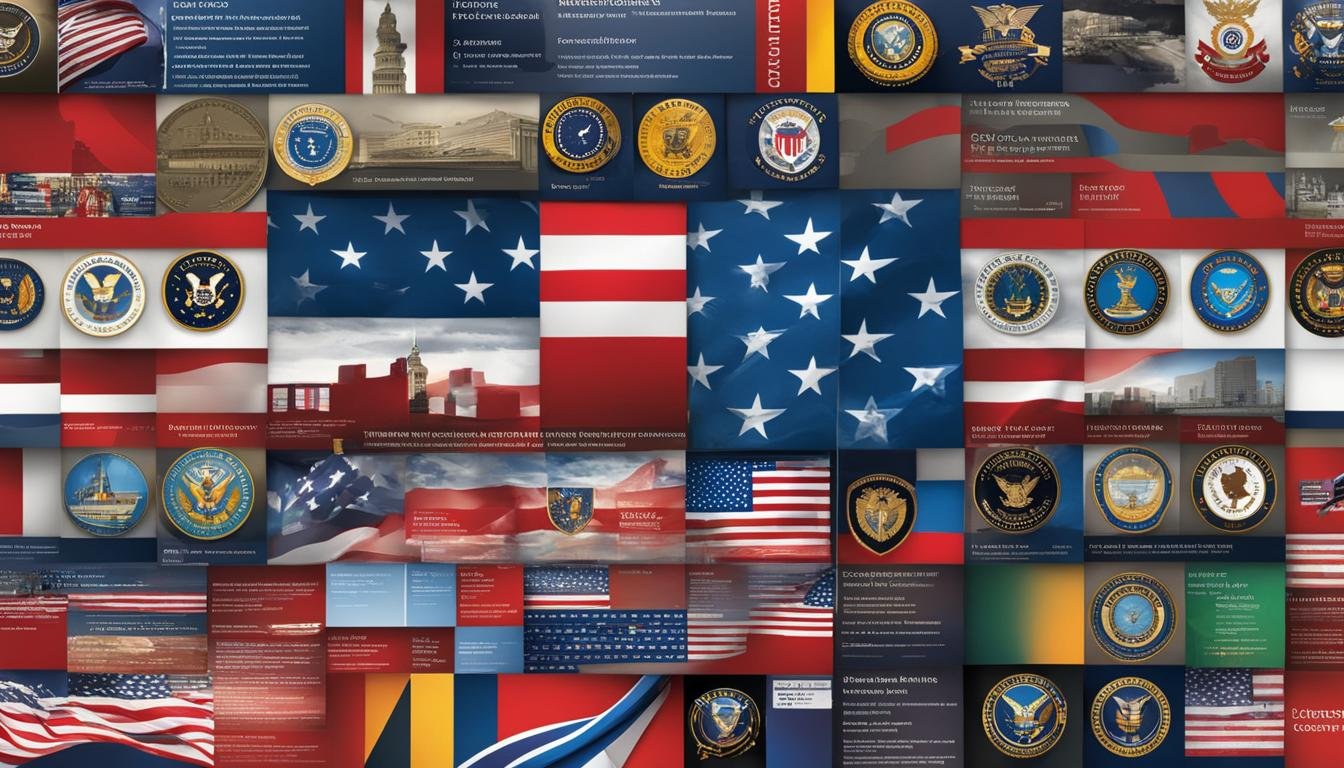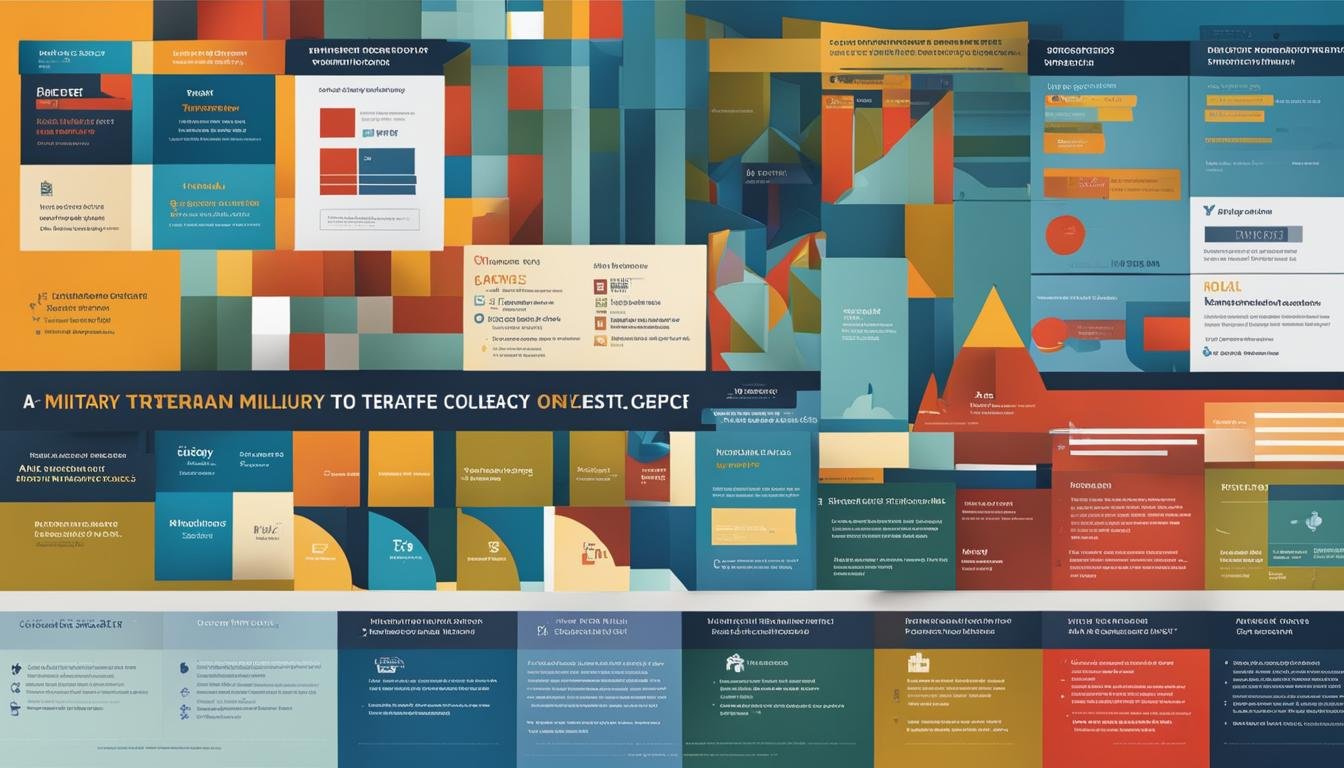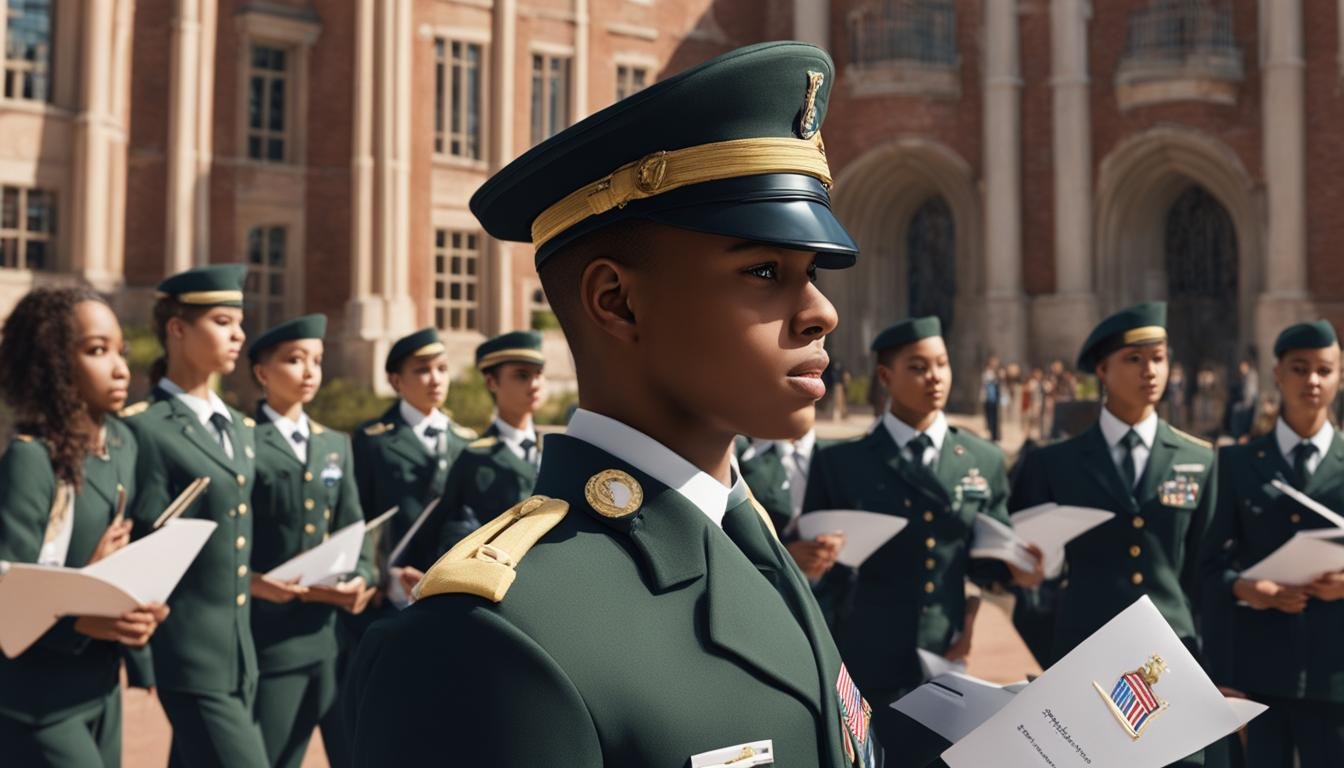When it comes to pursuing higher education as a veteran, finding the right institution can make all the difference in your academic journey. With a plethora of veteran-friendly colleges and universities to choose from, it’s important to compare your options and ensure the best fit for your unique needs.
From credit for military experience to the availability of veteran education benefits, there are several factors to consider when comparing institutions. With careful research and analysis, you can make an informed decision that sets you up for success.
In this section, we will explore the key aspects to consider when comparing veteran-friendly institutions and highlight the benefits they offer to veterans. By the end, you will have a better understanding of what to look for in your search for the best institution for your educational goals.
Key Takeaways:
- Compare veteran-friendly colleges and universities to find the best fit for your needs.
- Consider the importance of credit for military experience in reducing time and cost.
- Explore the veteran benefits offered by institutions, such as the Monthly Housing Allowance and campus support services.
- Examine the financial assistance and supplemental aid available at military-friendly universities.
- Take into account specific services for veteran students, such as mental health support and academic counseling.
Examining Top-Ranked Colleges for Veteran Programs

When it comes to finding the best colleges for veteran programs, it’s essential to consider institutions that prioritize the needs of veteran and military students. In this section, we will examine several top-ranked colleges known for their exceptional veteran programs and the support they offer.
Princeton University
Ranked number one in the National Colleges Rankings, Princeton University is renowned for its academic excellence and commitment to serving veteran students. While it only awards credit for the CLEP exam, it provides various resources and support for veterans on campus.
Williams College
As the top-ranked National Liberal Arts College, Williams College offers comprehensive support for veteran students. In addition to providing the Monthly Housing Allowance (BAH), the college is a participant of the Signed VA Principles of Excellence and the Yellow Ribbon Program.
Villanova University
Villanova University is another top-ranked institution that prioritizes the needs of veteran students. It offers various resources, including a Veterans Integration to Academic Leadership (VITAL) program, which provides support in academics, career development, and personal well-being.
Elon University
Known for its commitment to veteran support, Elon University offers a range of benefits and services. These include credit for military training, programs to assist with career transition, and a dedicated Veterans Center on campus.
Creighton University
Creighton University is recognized for its robust veteran programs, such as the Yellow Ribbon Program, which provides financial support to eligible veterans. The university also offers credit for military experience and has a dedicated Veterans Support Office.
Trinity University
Trinity University is committed to creating a supportive environment for veteran students. It offers services such as academic advising, counseling, and assistance with accessing VA benefits, ensuring a smooth transition into college life.
Cooper Union
Situated in New York City, Cooper Union is known for its rigorous academic programs and commitment to providing education without tuition fees for all students. The college also offers support services for veteran students, ensuring a supportive and inclusive educational experience.
When considering the best college for veteran programs, it’s crucial to evaluate the specific resources and support each institution provides. By examining these top-ranked colleges, veterans can find the right fit for their educational journey.
Conclusion
When it comes to comparing veteran-friendly institutions and finding the best fit for your educational journey, there are several factors to consider. By taking into account credit for military experience, financial assistance and supplemental support, specific services for veteran students, and the rankings of colleges and universities, you can make an informed decision.
Earning credit for your military experience can significantly reduce the time and cost of earning a degree. Look for institutions that offer credit for your prior training and expertise, allowing you to fast-track your education.
Financial assistance and supplemental support are essential for veterans pursuing higher education. Explore colleges and universities that accept GI Bill benefits and participate in programs like the Yellow Ribbon Program. Additionally, consider the availability of specific services such as health services, counseling, and mentorship programs tailored to veteran students.
Lastly, taking into account the rankings of colleges and universities can provide insight into the quality and support offered to veteran students. Look for top-ranked institutions that prioritize veteran programs and have a track record of success in supporting veterans’ education goals.



